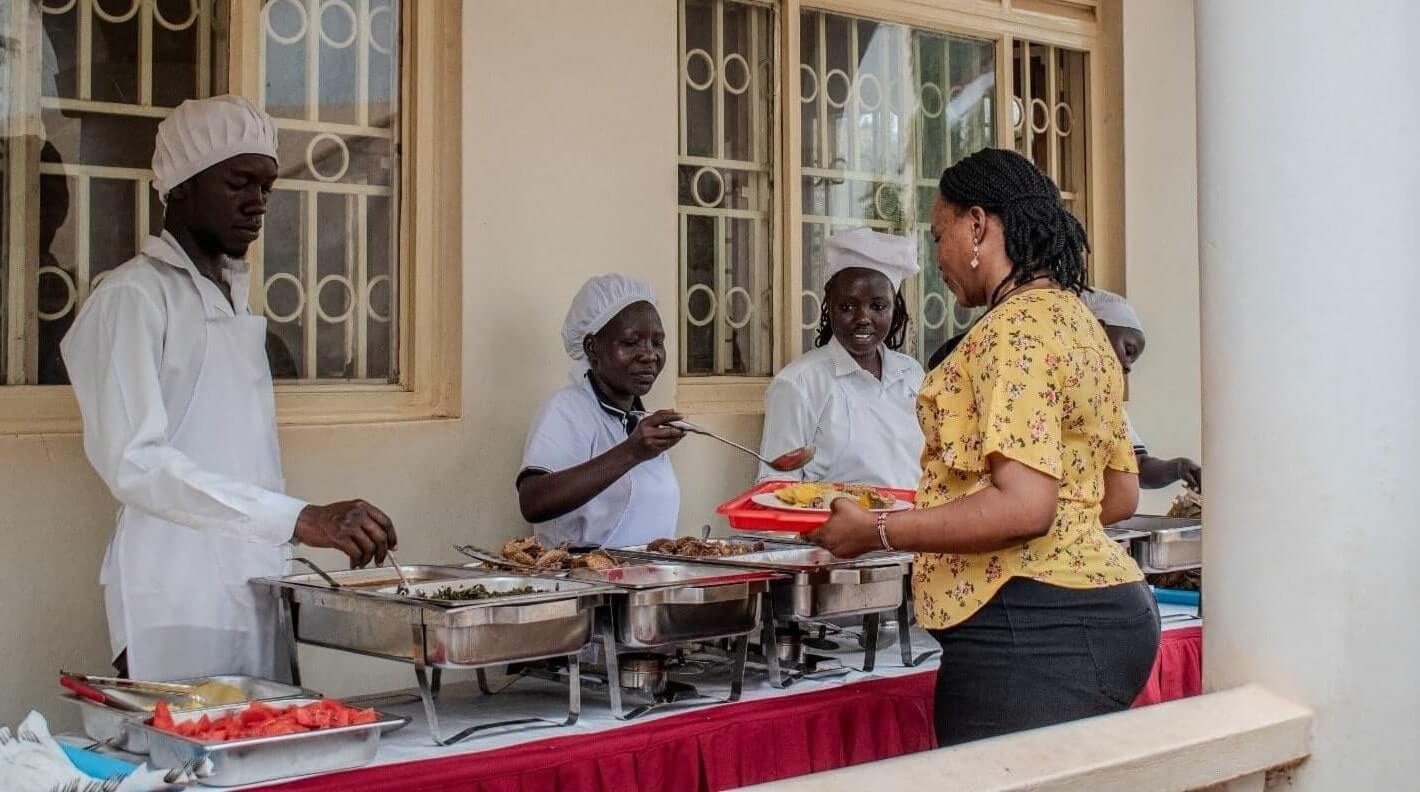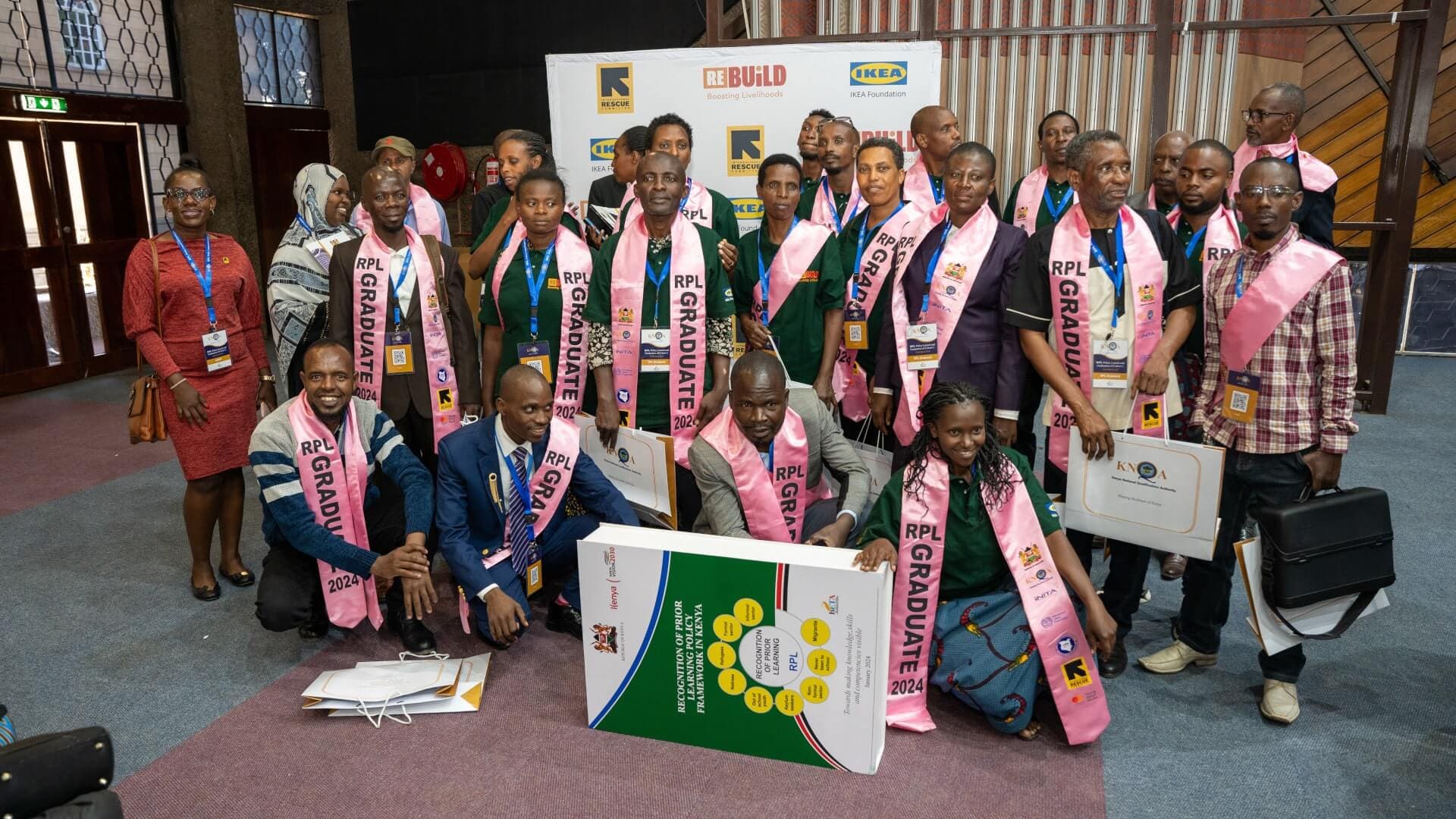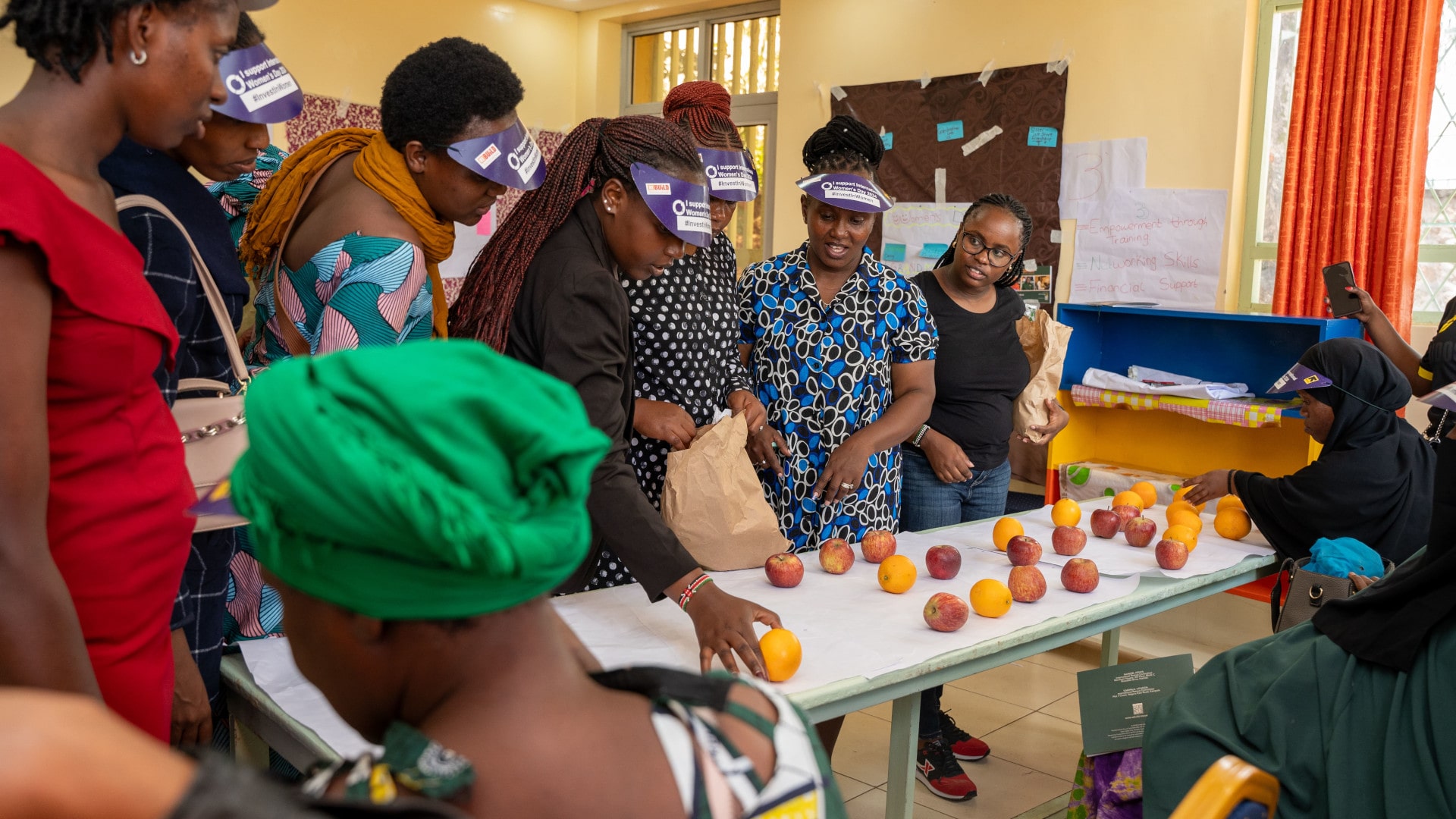Refugees at the core of design and implementation as Re:BUiLD rolls out second wave of study
Refugees at the core of design and implementation as Re:BUiLD rolls out second wave of study
The program’s upcoming second RCT wave builds on learnings from the first wave and will focus on building business and social networks aimed at facilitating self-employment for refugees and vulnerable host community members in Kampala and Nairobi.
Clare Clingain, Senior Research Coordinator at IRC interacts with David Musiime, the Re:BUiLD Research Coordinator during the RCT Wave 2 design workshop held in Nairobi, Kenya (PHOTO: Joseph Sosi/TheIRC)
Over the past three years, the International Rescue Committee (IRC) and the IKEA Foundation have collaborated to implement the program - Refugees in East Africa: Boosting Urban Innovations for Livelihoods Development (Re:BUiLD). This comprehensive initiative aims to assist both host communities and urban refugees to achieve economic independence and drive evidence-based systemic change.
Through the Re:BUiLD program, valuable insights and knowledge have been gathered regarding livelihood programming. Refugees are at the center of the program’s design, implementation, monitoring, and evaluation through Randomized Controlled Trials (RCT). These trials have the potential to show effective strategies for enhancing the livelihoods of urban refugees.
The program’s upcoming second RCT builds on learnings from the first RCT and will focus on building business and social networks specifically aimed at facilitating self-employment for refugees and vulnerable host community members in Kampala and Nairobi. The RCT tests the impact of business grants and activities that build business and social networks on business success and social cohesion. The lack of social networks in urban settings has emerged as a significant barrier to self-employment and successful labor market integration for refugees. By testing the viability of business and social networks as a critical ingredient, the RCT aims to support the establishment and maintenance of micro-enterprises for refugees and hosts in the two cities.
A pilot of the networking interventions, involving 100 participants in both Kampala and Nairobi in December 2023, tested the operational feasibility of the study. Results indicated a strong interest in networking interventions among clients. Furthermore, the pilot results suggested that delivering these interventions could lead to improved business outcomes and enhance social cohesion.
To ensure a comprehensive approach, the program actively involves refugee communities and leaders in the planning and implementation of the study. Following the successful pilot, a series of focus group discussions were held with refugees, Refugee-Led Organizations, local and religious leaders in both Kampala and Nairobi. These discussions fostered a shared understanding of the study’s approach, addressed concerns, provided feedback, and offered solutions to logistical or ethical constraints related to the RCT targeting 8,000 participants. Community engagements related to the RCT intervention delivery provided practical recommendations for navigating logistical challenges. Additionally, these engagements fostered greater awareness of cultural differences, which was essential for integrating them into RCT design.
The process culminated in a design workshop held in Nairobi from February 12th to 16th, 2024, where contributions from refugees, principal investigators, program staff, the IKEA Foundation, city authorities, and stakeholder reference group representatives were integrated.
Principal Investigators and the Re:BUiLD program staff taking a group photo during the RCT Wave 2 design workshop held in Nairobi, Kenya (PHOTO: Joseph Sosi/TheIRC)
The IRC’s director of economic evaluation and research, Justin Labeille, emphasizes the importance of involving clients and other key stakeholders in decision-making processes. This commitment, Labeille says, aligns with the IRC’s longstanding practice of actively listening to, collecting, and utilizing the perspectives of crisis-affected communities throughout all stages of interventions, including research design.
Labeille explains, “Our discussions were informed by both global evidence and local perspectives. The team incorporated feedback from refugee community leaders and representatives of refugee-led organizations in Kampala and Nairobi. These inputs are critical for building robust and thoughtful evidence on effective approaches within our economic recovery and development work. We intentionally move away from the conventional approach where clients are typically least involved during the design phase, which is when significant decisions are made.”
Timeline
Re:BUiLD intends to launch the second RCT in May 2024. An analysis of the impact of the program on client outcomes and the cost-efficiency and cost-effectiveness of each program variation of the study will be done to generate evidence for future programming.
The IRC is collaborating with the Immigration Policy Lab-Stanford University, Georgetown University, and Makerere University in this 18-month RCT.


